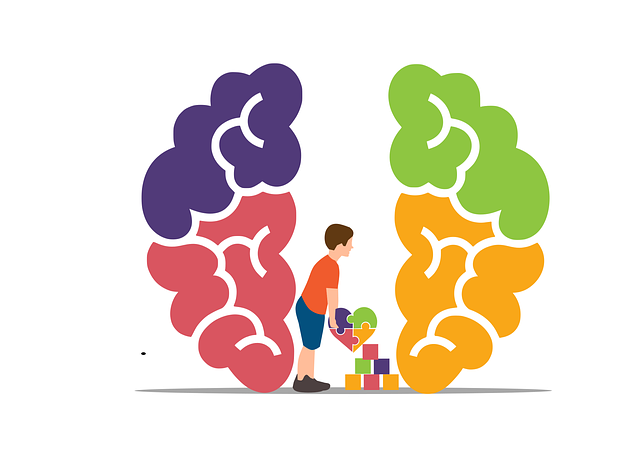Longmont Sexual Dysfunction Therapy introduces the RFM framework (Reliability, Flexibility, Mastery) for building resilience through emotional regulation, adaptability, and self-efficacy. This holistic approach combines structured therapy with exercise, mindfulness practices, and compassion cultivation to address sexual dysfunction by targeting psychological roots. By incorporating diverse resilience-building exercises, individuals enhance intimacy, communication, and self-confidence while managing stress and adversity effectively. The RFM method promotes proactive mental health management through simple routines, aligning with Mental Health Awareness goals.
“In today’s challenging world, building resilience is paramount for mental well-being. This article explores the powerful combination of RFM (Resilience, Flexibility, and Mastery) and exercises designed to strengthen mental fortitude. We delve into how Longmont Sexual Dysfunction Therapy serves as a guiding light, offering resources to unlock personal resilience. Understanding RFM provides a framework for navigating life’s storms. Through various exercises, individuals can cultivate adaptability and thrive. Discover practical ways to integrate RFM into daily routines, fostering lasting change and enhancing overall resilience.”
- Understanding RFM: A Framework for Resilience
- The Role of Exercise in Building Mental Fortitude
- Longmont Sexual Dysfunction Therapy: Unlocking Resources
- Types of Resilience-Building Exercises
- Integrating RFM into Daily Life for Lasting Change
Understanding RFM: A Framework for Resilience

Resilience is a critical component of overall well-being, and Longmont Sexual Dysfunction Therapy offers valuable insights into cultivating it through the RFM framework. RFM stands for Reliability, Flexibility, and Mastery, providing a structured approach to enhance resilience in individuals. This model encourages clients to develop inner strength by focusing on these three key pillars.
Reliability refers to one’s ability to maintain a sense of stability and consistency, especially during challenging times. Emotional regulation, a crucial aspect of emotional intelligence, plays a significant role here. By learning to manage and control emotions effectively, individuals can navigate life’s storms with greater ease. Flexibility involves adaptability; it is about embracing change and being open to new possibilities, fostering a growth mindset. Longmont Sexual Dysfunction Therapy guides clients in understanding that flexibility does not mean weakness but rather the strength to bend without breaking. Mastery, the final component, empowers individuals to take control and develop a sense of self-efficacy, enabling them to overcome obstacles and pursue their goals with confidence.
The Role of Exercise in Building Mental Fortitude

Exercise is a powerful tool in building mental fortitude and resilience, particularly when integrated into therapeutic practices like Longmont Sexual Dysfunction Therapy. Beyond physical benefits, regular activity stimulates the release of neurochemicals that enhance mood and reduce stress, anxiety, and depression. This effect can significantly improve clients’ overall well-being and coping mechanisms.
Incorporating exercise routines into therapy sessions allows mental health professionals to engage clients in proactive risk management planning for their emotional health. Effective communication strategies, as encouraged by Mental Health Policy Analysis and Advocacy, can further benefit from this approach. By modeling healthy habits and discussing the positive impacts of physical activity, therapists empower individuals to take control of their mental health, fostering a sense of agency that complements any policy or advocacy efforts.
Longmont Sexual Dysfunction Therapy: Unlocking Resources

Longmont Sexual Dysfunction Therapy offers a transformative journey toward healing and empowerment for individuals navigating sexual dysfunction. This specialized therapy goes beyond addressing symptoms; it delves into the underlying causes, often rooted in complex psychological and emotional factors. By utilizing evidence-based Mind Over Matter Principles, therapists create a safe space where clients can explore and challenge limiting beliefs, anxiety relief becomes a tangible goal as they learn to manage their responses.
The practice incorporates Compassion Cultivation Practices, fostering self-acceptance and empathy towards oneself and others. This holistic approach recognizes that sexual health is intrinsically linked to overall well-being. By engaging in Longmont Sexual Dysfunction Therapy, individuals not only gain practical tools for improving their sexual lives but also develop resilience, enhancing their ability to face challenges with grace and adaptability.
Types of Resilience-Building Exercises

Resilience-building exercises come in various forms, each tailored to different aspects of an individual’s life and well-being. One popular approach is Longmont Sexual Dysfunction Therapy, which focuses on enhancing intimacy and communication skills, thereby fostering emotional resilience within intimate relationships. This type of therapy provides a safe space for individuals to explore and overcome sexual challenges, boosting their self-confidence and resilience in these areas.
Additionally, Risk Management Planning for Mental Health Professionals involves exercises that teach effective coping strategies and stress management techniques. These programs are designed to strengthen mental health professionals’ ability to handle challenging situations, thereby improving their overall resilience. Another dimension of resilience development is Inner Strength Development, which encourages individuals to cultivate self-awareness, positive thinking, and a sense of purpose. Through various activities like meditation, journaling, and mindfulness practices, one can tap into their inner strength, making them more resilient in the face of life’s adversities.
Integrating RFM into Daily Life for Lasting Change

Integrating RFM (Resilience, Flexibility, and Mindfulness) into daily routines is a powerful approach to cultivating lasting change, especially for those seeking Longmont Sexual Dysfunction Therapy. This method encourages individuals to develop a proactive mindset in managing stress and adversity. By incorporating resilience-building exercises, one can enhance their ability to navigate life’s challenges, fostering a sense of control and empowerment.
The practice involves simple yet effective techniques that seamlessly fit into everyday activities. For instance, mindfulness meditation can be done during morning coffee or commuting, helping individuals stay present and reduce anxiety. Regular physical activity, another aspect of RFM, becomes a catalyst for stress relief and improved mental health, contributing to overall well-being. Longmont Sexual Dysfunction Therapy professionals often emphasize the importance of such integrated approaches in their Risk Assessment for Mental Health Professionals training, as they promote client self-sufficiency and complement traditional therapy methods. This holistic strategy aligns with Mental Health Awareness goals, encouraging individuals to take an active role in their mental health journey.
Resilience is a powerful tool for navigating life’s challenges, and Longmont Sexual Dysfunction Therapy offers valuable insights into cultivating this strength. By understanding the RFM framework and incorporating resilience-building exercises into daily routines, individuals can enhance their mental fortitude and adapt to life’s curveballs. These strategies, as highlighted in our discussion, provide a holistic approach to personal growth, ensuring that people are equipped to embrace change and thrive despite adversity.














